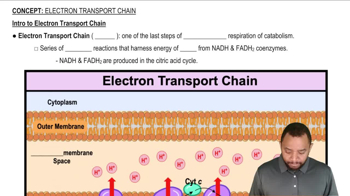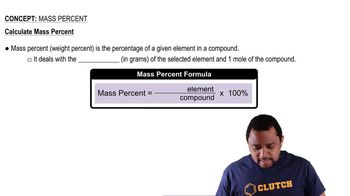Complete each of the following bombardment reactions:
d. ? + 6428Ni → 272111Rg + 10n
 Verified step by step guidance
Verified step by step guidance Verified video answer for a similar problem:
Verified video answer for a similar problem:



 2:06m
2:06mMaster Types of Radiation Concept 1 with a bite sized video explanation from Jules
Start learning